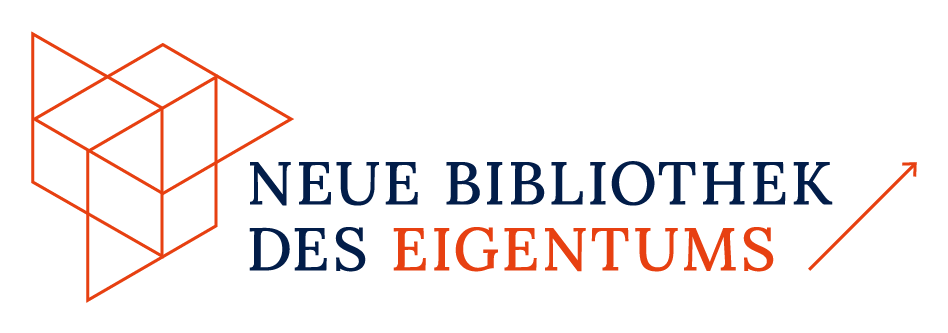Conflicts over Property and State Responses to the Internationalization of Chinese Companies in the US and the EU

Outline
Building upon research from the initial funding phase, this project shifts the focus from exploring the causes of new state activities to emphasizing their effects on Chinese-owned entities. The foundational assumption is that the "new statism" observed in the USA and EU primarily targets Chinese state-owned enterprises and those holding strategic stakes in high technology sectors. However, these measures affect the international strategies of Chinese corporations differently: There are indications of significant scaling-back of corporate networks in the USA ("decoupling"), while the same firms appear to be merely adapting their strategies within the EU market (e.g., shifting business areas).
Central to the analysis is a comparison of company-related property conflicts in the USA and EU, the property-oriented state responses in industrial and foreign economic policies concerning the internationalization of Chinese companies, and the resulting strategic adjustments these firms undertake in both markets. The project employs a mixed-methods design: First, a comparative analysis of state responses in the USA and EU will be conducted. Subsequently, the SinoTop500 dataset, established during the first funding phase (detailing ownership structures of the largest Chinese companies), will be expanded to include data reflecting the impacts of these property-related state measures and analyzed using descriptive statistical methods. Finally, this quantitative analysis will be deepened by qualitative case studies examining the changing strategies of selected Chinese enterprises in the USA and EU.
Project activities
Publications
Academic publications
- Schmalz, S.; Schneidemesser, L., Xu, H. (2024): “An Emerging China-Threat-Corporatism? CRRC’s Acquisition of a German Locomotive Company and Its Impact on Labour Relations”, In: European Journal of Industrial Relations, online first, https://doi.org/10.1177/09596801231226421.
- Köncke, P.; De Graaff, N. (2024): “Chinese Multinationals and Europe’s Geoeconomic Turn: De-globalization of the Chinese ICT and Automotive Industry?“, In: Politics and Governance 12, https://doi.org/10.17645/pag.8195.
- Köncke, P.; Schmalz, S. (2024): “The World-System of Vaccine Distribution. Global Inequalities and Geopolitical Conflicts During the COVID-19 Pandemic”, In: Journal of World-Systems Research 30(1), 195-222, https://doi.org/10.5195/jwsr.2024.1173
- Peters, F.; Rinne, J.; Saalfeld, R.; Schmalz, S.; Stuart, A.; von der Weth, L. (2024): “Eigentumskonflikte: Eine Typologie”, SFB 294 Working Paper No. 5, https://sfb294-eigentum.de/de/publikationen/working-paper/#paper-nr-5
- Gräf, H.; Schmalz, S. (2023): “Avoiding the China shock: How Chinese state-backed internationalization drives changes in European economic governance”, In: Competition and Change, online first: https://doi.org/10.1177/10245294231207990.
- Erlbacher, L.; Schmalz, S. (2023): “Chinese Perspectives on the US-China Rivalry: Navigating Geo-economic and Technological Tensions in a New Era of Global Statism”, In: Critical Policy Studies 17(2), 337-345, https://doi.org/10.1080/19460171.2023.2218463.
- Schmalz, S. (2023): “Varianten des digitalen Kapitalismus: China und USA im Vergleich”, in: Carstensen, T.; Schaupp, S.; Sevignani, S. (Hg.): Theorien des digitalen Kapitalismus, Berlin: Suhrkamp, 285-304.
- Köncke, P.; Simon, J. (2022) (Hg.): StaatsKapitalismus, PROKLA. Zeitschrift für kritische Sozialwissenschaft Nr. 208.
- Schneidemesser, L./ Butollo, F. (2022): “Alibaba’s Distribution-Centred Approach towards the Industrial Internet: A Chinese Version of Industry 4.0?”, In: Gereffi, G.; Bamber, P.; Fernandez-Stark, K. (Hg.) China’s New Development Strategies: Moving Up and Moving Abroad in Global Value Chains, Palgrave Macmillan, Singapore, 61-83. https://link.springer.com/chapter/10.1007/978-981-19-3008-9_3
- Schmalz, S.; Gräf, H.; Köncke, P.; Schneidemesser, L. (2022): “Umkämpfte Globalisierung: Amerikanische und europäische Reaktionen auf Chinas Aufstieg im Hochtechnologiebereich“, in: Berliner Journal für Soziolologie 32(3), S. 427–454. DOI: 10.1007/s11609-022-00481-x.
Media and podcasts
- “Decoding China: Wer prägt das Internet der Zukunft?“, report by Deutschen Welle about Chinese internet with reference to the research of JRT02 (24.05.2024)
- “Germany Passed its First Chinese Test—This One Is Trickier“, Article in the Wall Street Journal with Helena Gräf as an expert on German industrial competition with China (10.4.2024)
- ARD Fakt with Stefan Schmalz as an expert on the strike at the Chinese-acquired company SRW Metalfloat (19.3.2024)
- “Wie halten es chinesische Investoren mit Tarifbindung und Betriebsräten?“ with Stefan Schmalz as an expert on Chinese investors on MDR (5.3.2024)
- “Streik seit 120 Tagen Sachsen auf Rekordkurs gegen den chinesischen Arbeitgeber“ with Stefan Schmalz as an expert in the Tagesspiegel on the strike at SRW Metalfloat (04.03.2024)
- “Streik bei SRW Metalfloat. Interview mit China-Experte Stefan Schmalz“, in conversation with Andrea Weingart for IG Metall Leipzig (01.03.2024)
- “Pekings Impfstoff-Diplomatie erreicht ihre Grenzen“ with Philipp Köncke as expert at ChinaTable on Chinese vaccine exports (12.5.2022)
Lectures
- Schmalz, Stefan: “Chinesische E-Auto- und Batteriehersteller als neue Wettbewerber: Industrie- und arbeitspolitische Herausforderungen“, China Briefing of the Friedrich-Ebert-Stiftung/ Foreign Policy Working Group of the SPD Parliamentary Group, German Bundestag, Berlin (25.4.2024)
- Schmalz, S.; Schneidemesser, L.: “What Does Chinese Direct Investment Mean for Co-Determination? A Comparative Study in the German Metal and Electronics Industry”, International Labor Process Conference, Göttingen (5.4.2024)
- Schneidemesser, Lea: “An Emerging China Threat Corporatism? Chinese Brownfield Investments with Industrial Policy Implications”, Seminar Series “The world at present – scholars international research”, No. 14, Shanghai University, Institute of Economic Sociology and Multinationals, Shanghai (5.1.2024)
- De Graaff, N.; Köncke, P.: “China Inc. Enters Europe: Internationalization Strategies of Chinese ICT and Automotive Companies Expanding into the European Union”, EWIS-Workshop, Amsterdam (12. bis 14.7.2023)
- Schneidemesser, Lea: “Chinese OFDI in Europe amid Digitalization –Beyond Huawei and Tiktok, what access to data can be gained by Chinese investors in Europe?”, SASE Annual Conference 2023, Rio de Janeiro (20. bis 22.7.2023)
- Schmalz, Stefan: “When Germany Started Questioning Chinese FDI: An Analysis of the Acquisition of a Leading German Robotics Company”, Conference “Breaking Boundaries – Chinese Companies Abroad”, The Australian National University, Canberra (29.6.2023)
- Gräf, Helena: “Conflicts over the rise of Chinese Capitalism: The reconfiguration of economic governance in the EU”, Workshop „Germany’s Geopolitical Economy“, Munk School of Global Affairs & Public Policy, University of Toronto (30.09.2022)
- Schmalz, Stefan: “Digitale Kapitalismusvarianten: China und USA im Vergleich”, DGS Congress 2022, Bielefeld, (29.9.2022)
- Erlbacher, L.; Köncke, P.: “The Anatomy of China’s State Capitalism: Mechanisms of Party-State Influence and Degrees of State-Permeation”, REDEFINE China/Europe and the Changing Global Order Seminar Series (The Open University, UK), digital (8.9.2022)
- Köncke, Philipp: “Mechanisms of Party-State Influence and Degrees of State-Permeation in China’s Capitalism”, SASE Annual Conference 2022, Amsterdam (10.7.2022)
Events
- “Workshop: The Chinese Property Regime: Empirical Findings and Theoretical Insights”, joint workshop of projects JRT02 and C01, Max-Weber-Kolleg, University Erfurt. (5.6.2024)
- “Neue Akteure in der Transformation zum E-Auto: Herausforderung für die Mitbestimmung durch chinesische Batteriehersteller“ session at LABOR.A 2023 – WIE GESTALTEN WIR DIE „ARBEIT DER ZUKUNFT“?, in cooperation with IG Metall with lecture and moderation by Stefan Schmalz and Lea Schneidemesser. (27.09.2023)
- Internationale Konferenz “Globalization in Decline? Economic Stagnation, Geopolitical Conflicts, and Environmental Crises“ with keynotes of Walden Bello (Binghamton University/Kyoto University), Birgit Mahnkopf (HWR Berlin) and Peter A.G. van Bergeijk (International Institute of Social Studies, ISS, The Hague). (27. – 29.10.2022)
- Adhoc group “Zur Renaissance von Entwicklungsstaat und Staatskapitalismus –konzeptionelle und empirische Perspektive“ (organized by Philipp Köncke, Stefan Schmalz, Jenny Simon) DGS-Kongress 2022, University Bielefeld. (7.9.2022)
- International Workshop “Clash or Convergence of Capitalisms China’s Globalizing Model and its Impact on the European Union“. (09. – 10.06.2022)





